September 6, 2018
Gig economy growing but employers should continue to cultivate in-house talent
 The number of “gig economy” professionals working in organisations is growing and this trend is expected to continue, a survey by Korn Ferry has claimed. More than half (60 percent) of HR professionals say that compared to three years ago, gig workers now make up a larger percentage of their professional workforce, and 42 percent say they plan on hiring more contingent workers in the future. The reasons, according to the survey, include cost savings, access to high-calibre talent and ease of managing gig economy professionals. Despite the fact that many gig professionals work remotely, 67 percent of the HR professionals surveyed say they are confident they know what the gig professionals are doing on a day-to-day basis, and 42 percent say these contingent employees are easier to manage than full-time employees. However, according to Jeanne MacDonald, president of Global Talent Solutions for Korn Ferry’s RPO and Professional Search Business, organisations should proceed cautiously and ensure they continue to cultivate in-house talent.
The number of “gig economy” professionals working in organisations is growing and this trend is expected to continue, a survey by Korn Ferry has claimed. More than half (60 percent) of HR professionals say that compared to three years ago, gig workers now make up a larger percentage of their professional workforce, and 42 percent say they plan on hiring more contingent workers in the future. The reasons, according to the survey, include cost savings, access to high-calibre talent and ease of managing gig economy professionals. Despite the fact that many gig professionals work remotely, 67 percent of the HR professionals surveyed say they are confident they know what the gig professionals are doing on a day-to-day basis, and 42 percent say these contingent employees are easier to manage than full-time employees. However, according to Jeanne MacDonald, president of Global Talent Solutions for Korn Ferry’s RPO and Professional Search Business, organisations should proceed cautiously and ensure they continue to cultivate in-house talent.








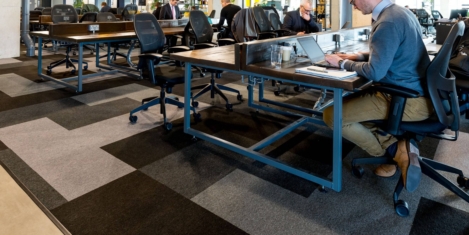
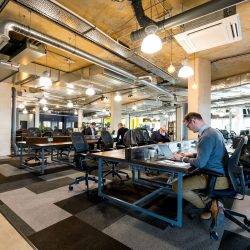



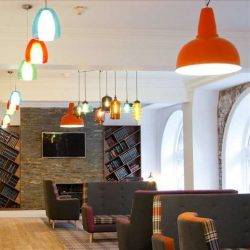
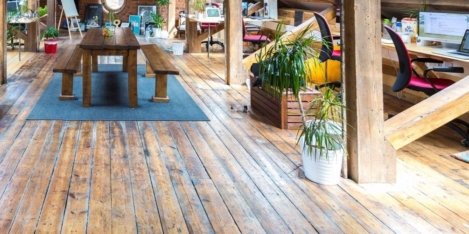



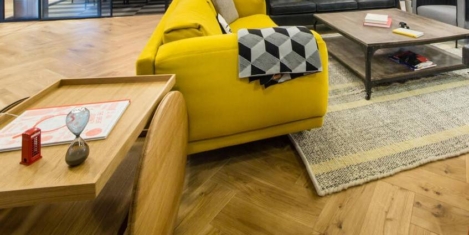


 The future workplace will replace familiar, rigid hierarchies and departments with small, collaborative networks of teams and the lines between individual organisations and ecosystems will blur as companies increasingly cast their net wider to innovate. This is one of the predictions made in a Fujitsu-commissioned whitepaper ‘
The future workplace will replace familiar, rigid hierarchies and departments with small, collaborative networks of teams and the lines between individual organisations and ecosystems will blur as companies increasingly cast their net wider to innovate. This is one of the predictions made in a Fujitsu-commissioned whitepaper ‘







September 13, 2018
You should not expect the coworking bubble to burst anytime soon
by Kathryn O'Callaghan-Mills • Comment, Coworking, Property, Workplace design
(more…)